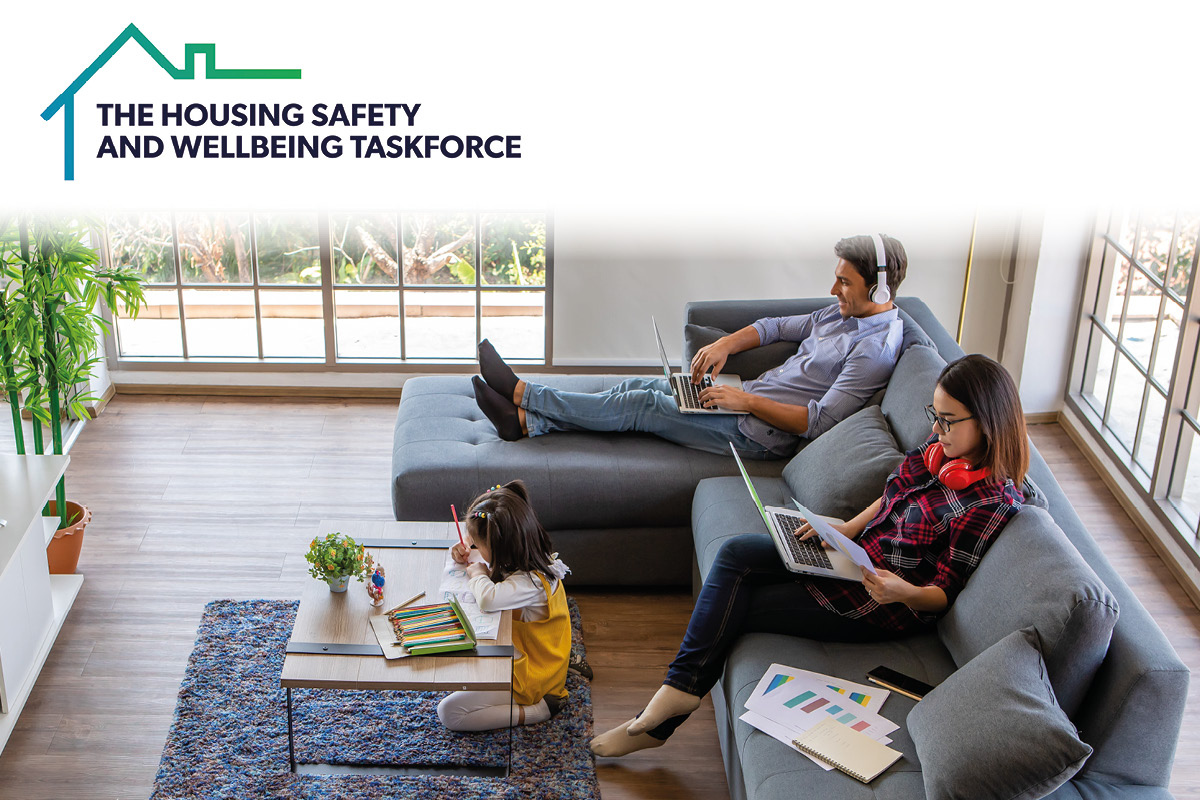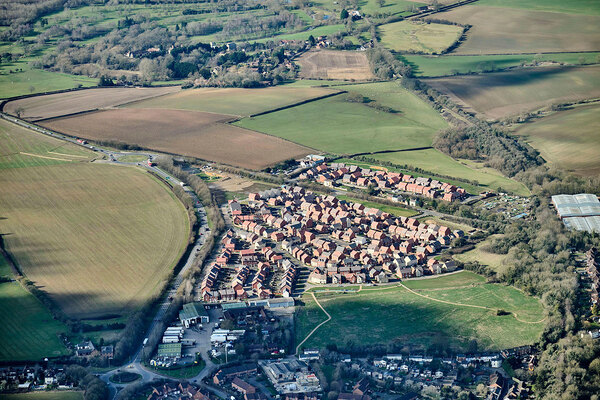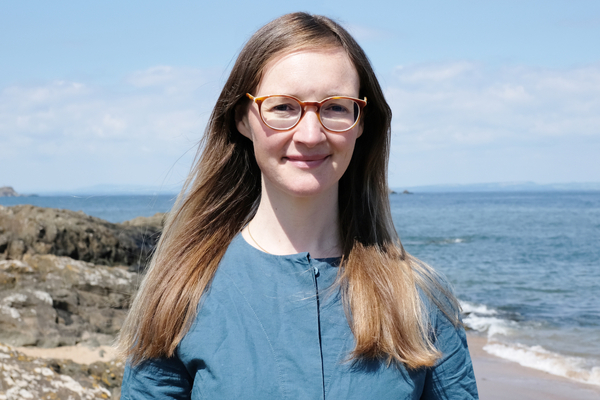The Housing Safety and Wellbeing Taskforce
Across housing there is a need to deliver and reform how we work. There are many issues the sector must continually address. For instance, we face the dual challenge of meeting stretching new build targets whilst also delivering on the retrofit agenda to improve the efficiency and sustainability of our existing housing stock. And all of this against a constant changing regulatory backdrop which also rightly places importance on safety, health, quality and economic justice.
Our view is that we should not be creating working silos and tackling these issues in isolation. We believe in a holistic, linked and collaborative approach to deliver mutual benefit. We see the overlap of these areas, for example the talk of the net zero transition often focuses on the technical and economic challenge without framing the health benefits of reducing carbon in the atmosphere. So we want to share knowledge and understanding to help inform the key decisions the sector needs to make to allow for the provision of safer and healthier homes.
This is why The Housing Safety and Wellbeing Taskforce has been established.
Who are we?
We are a collection of organisations from across the private and public housing sectors who have come together to help develop solutions to address the safety, wellbeing and sustainability of UK homes. whilst also maintaining regulation compliance.
How do we do this?
For us it comes from a simple guiding principle - placing residents and the effective engagement with them at the centre of all our work. We have chosen to do this because residents are the common denominator to all of these issues. So to provide the effective solutions they want, we need to listen to them and engage them in the design of the delivery solutions.
These are challenges that overlap but have common benefit.
Therefore, we have pledged as the taskforce to work collaboratively and take a holistic approach. We have identified the following core areas of focus which we believe are all interconnected:
- Resident engagement·
- Fire & Carbon Monoxide Safety
- Net Zero / Decarbonisation
- Health & Wellbeing
- Fuel Poverty
- Housing Quality
By linking these areas together and taking our lead from resident engagement we believe it is possible to develop solutions which deliver on all aspects.
As the sector evolves, we will all need to learn and adapt to more sustainable living practices. This has not been done before so we will be learning by doing. Therefore, for this to happen effectively, collective action is critical. We should focus on developing joint solutions and sharing best practice. This is from two angles - both on what works well but just as importantly what doesn’t work so that valuable time and money can be saved.
Resident engagement must be at the heart of delivery. If you take decarbonisation as an example, the success of any net zero transition relies on behaviour change. For housing this will focus on how people heat their home. If they are involved in defining the solutions and technology employed, then they are more likely to adapt their behaviour which will make the economic and technical investment involved a success.
To engage effectively we really do need to look towards transforming the language and terminology we use. Too often we fall into technical language, using anacronyms or linking everything to a financial outcome. Humans are at the heart of all of this, so we should speak effective human to them and speak about the subjects in language that appeals to all. It is always easier to add technical detail to a conversation than it is to decode from a purely technical explanation of actions. By doing this then surely, we will make it more inclusive for residents.
Another of our aims is to be an independent voice in the sector so that we can help inform change. Change that is driven from within the sector, blending the experience of our members with that of the concerns and needs of our residents.
We want to help inform best practice in the sector. We will do this by undertaking research. We very much believe in an evidence-based approach to inform decision making and the design of regulations and standards through a collective voice.
Today, there are discrepancies across the UK on fire safety and carbon monoxide regulations. We want to change that using research to create enhanced levels and standardisation across the whole of the UK. Why? Because we want to ensure communities are equally protected regardless of where they live or the type of property they occupy. When applied to the decarbonisation question we feel this will help to deliver upon the just and fair transition of a move to net zero.
By working together, we see the opportunity to increase the collective knowledge that is held across the sector for today and tomorrow’s challenges.
It is important to point out that this is a national platform. We want to take the best from all four corners of the UK to achieve consistency across health, safety, and wellbeing. We understand that this requires a change of mindset, but by having the focus around the resident, we believe we are addressing the concerns and issues of the ultimate end-user.
For those of us working in the sector we are already wrestling with how to overcome some of the issues discussed. By pooling our knowledge and where appropriate resources this is the most effective way to deliver outcomes for everybody’s mutual benefit.
There are so many enthusiastic passionate people working in the sector we believe collective power will drive further effective change.
We are keen to hear from like-minded individuals and organisations who would like to join us in our work. You can register your interest here
Tina Mistry is Relationships Manager at Aico, a partner of the Taskforce



